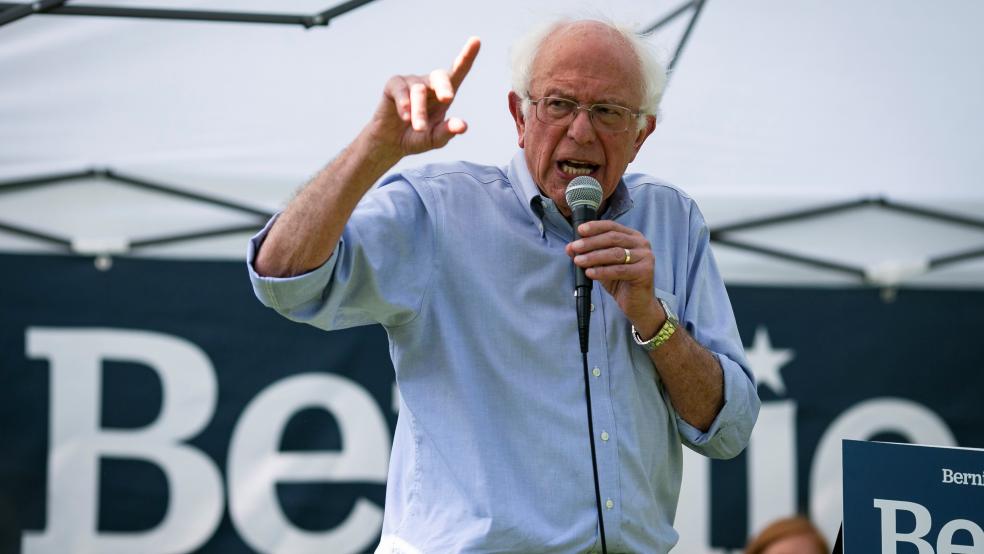We highlighted yesterday a defense of wealth taxes from Gabriel Zucman, a liberal economist who has advised both Elizabeth Warren and Bernie Sanders on their tax proposals. On Friday, a pair of conservative economists laid out their argument opposing such taxes in what The Washington Post’s Jeff Stein said was a “possible preview of Republican attacks against the idea.”
Douglas Holtz-Eakin, who served as director of the Congressional Budget Office during the George W. Bush administration, and Gordon Gray of the conservative advocacy group American Action Forum argue in a new paper that both Warren’s and Sanders’ wealth taxes would place a “disproportionate burden” on workers. Warren’s proposed wealth tax — 2% on household wealth over $50 million, rising to 6% on household wealth over $1 billion — would reduce worker earnings by $1.2 trillion over a decade, while the Sanders plan — a graduated tax on wealth over $32 million — would cost workers $1.6 trillion.
The analysis assumes that a wealth tax would have a clear negative effect on economic growth and wages, operating through a fairly basic mechanism. “[T]he tax constitutes a reduction in the supply of capital, and as a result it will reduce investment in innovation, lower productivity growth, and thus reduce wage growth. These responses shift, at least in part, the effective burden of the taxes to the average worker,” the economists say.
The analysis does not take into account the way in which the revenues raised by a wealth tax – estimated to be somewhere between $2 trillion and $4 trillion – would be used by the government, which proponents say would increase economic growth through investments in public goods. “This analysis from a right-wing think tank relies on disproven assumptions about how taxes on the ultra-rich affect the economy,” Warren campaign spokeswoman Saloni Sharma said in a statement quoted by The Hill. “Elizabeth's wealth tax will produce trillions in revenue to fund middle-class investments that will grow our economy and provide families with more financial security.”
Other supporters of the wealth tax took issue with the assumptions built into the AAF economic model.
- Matt Bruenig of the left-leaning People’s Policy Project argued that recent reductions of taxes on capital have been associated with less investment, not more, contrary to the economic model deployed by AAF.
- Michael Linden of the progressive advocacy group Groundwork Collaborative rejected the basic framework of the analysis while tweaking conservatives over their big and largely unfilled promises about the Trump tax cuts: “Arguments that a wealth tax will ‘hurt the economy’ always ignore negative effects of wealth inequality, and rely on an empirically unsupported idea of the relationship between taxes and investment,” Linden tweeted Friday. “Remember how the corporate tax cut was supposed to unleash an investment boom?”
The bottom line: We’ll probably be hearing a lot about wealth taxes as we head toward the 2020 elections this fall. The wildly different estimates of how they would affect the economy highlight just how far apart Democrats and Republicans are on the issue.




